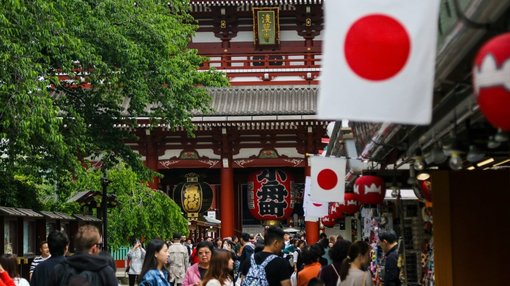Lack of Enthusiasm Among Young Japanese to Study or Work Abroad
Japan Asia International Studies by Erudera News Feb 10, 2021

Only 4 percent of all Japanese university students pursue higher studies abroad, according to the Japanese Department of Education.
The increase of the “inward-looking youth” who are less interested in studying abroad has triggered distress among Japanese journalists, policymakers and business leaders in recent years, Erudera reports.
A survey assembled in 2019 by the government revealed that only a third of young Japanese prefer to study abroad, followed by 66 per cent of South Koreans and 51 per cent of Germans.
The same happens when it comes to working abroad. Another survey carried out by Sanno University in 2017 found that 60 per cent of young Japanese employees did not prefer to work in other countries, marking a decrease from 36 per cent a decade earlier.
The number of Japanese nationals wanting to study abroad has increased from the late 1980s to the early 2000s. Many of them have been able to travel abroad even without scholarships or loans due to the strong Japanese currency.
Whereas, the largest banks in Japan have made it possible for their employees to study at American business schools every year.
“We were dozens of Japanese in the same class at Harvard. We would study together and share our notes so we could all pass the course,” said Hiraga Tomikazu of Osaka Seikei University, who attended Harvard Business School.
The reason why Chinese and Indian students studying and working abroad are more numerous than the Japanese is due to a resilient labour market. The unemployment rate in Japan was below 3 per cent for three years until the COVID-19 pandemic, which reduces numbers of people working and studying abroad.
“In a way, the structure of the Japanese workforce does not discriminate on the basis of university education. In any case, the remuneration of graduates of foreign institutions is little different from that of colleagues who have studied at home,” Yonezawa Akiyoshi of Tohoku University said.
It seems that there is discouragement from going abroad among some youngsters due to shyness to speak English or other languages as the Japanese people are ranked low on the English proficiency index established by EF, which is a specialized company on language teaching and educational exchanges.
Recent Articles
France
Apr 26, 2024
United States
Apr 25, 2024
Hong Kong
Apr 25, 2024
United States
Apr 25, 2024
United Kingdom
Apr 24, 2024


